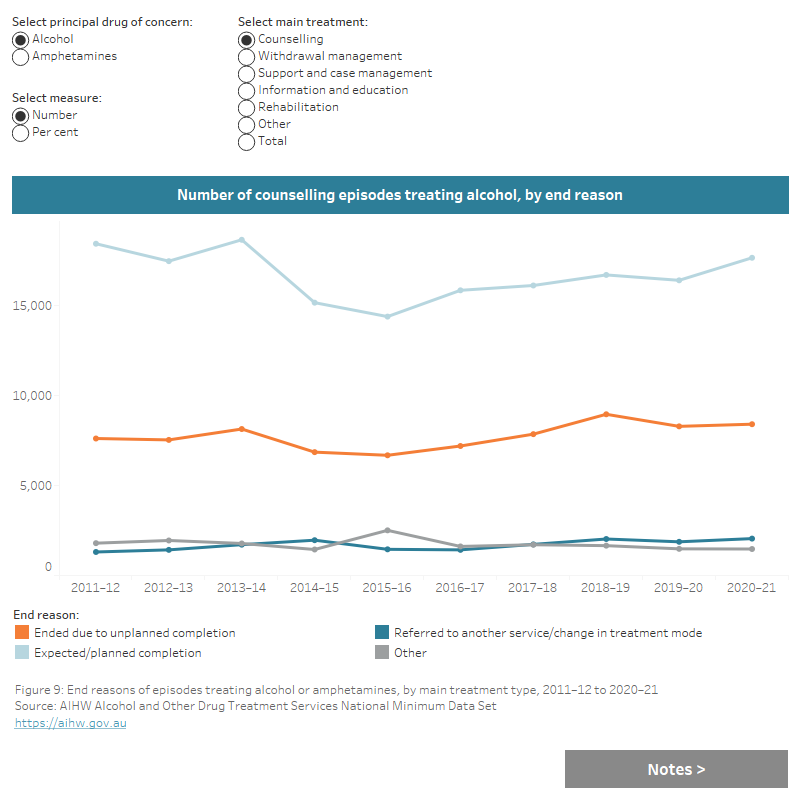Principal drug of concern and treatment type
Principal drug of concern
Alcohol and amphetamines have consistently been the most common principal drugs of concern for which clients have sought treatment since 2011–12 (AIHW 2022). In 2020–21, nearly 4 in 10 treatment episodes were for alcohol as the principal drug of concern (37% of episodes), and 1 in 4 episodes were for amphetamines (24%).
Completion of treatment episodes for a client’s own AOD use varies by principal drug of concern, with treatment for amphetamines more likely to end in unplanned completion than treatment for alcohol. This trend has been consistent over time:
- around 3 in 10 episodes providing treatment for amphetamines had an unplanned completion (ranging from 28% in 2011–12 to 33% in 2018–19)
- around 2 in 10 episodes providing treatment for alcohol had an unplanned completion (ranging from 22% in 2011–12, peaking at 24% in 2018–19).
For further detail, refer to Supplementary table BLTN.13.
Main treatment type
Figure 9 shows yearly trends in completion of episodes treating alcohol and amphetamines between 2011–12 to 2020–21, by main treatment type.
Figure 9: End reasons of episodes treating alcohol or amphetamines, by main treatment type, 2011–12 to 2020–21
This interactive data visualisation shows yearly trends in number and proportion of episodes treating alcohol or amphetamines between 2011–12 to 2020–21. Episodes are presented by reason for cessation and main treatment.

In 2020–21, counselling was the most common main treatment provided to clients for their own use of either alcohol or amphetamines (AIHW 2022). Counselling episodes were also the most likely to end in a planned completion. However, the proportion of counselling episodes ending as planned has declined since 2011–12:
- over 3 in 5 (63%) episodes for alcohol ended in a planned completion in 2011–12, falling to 60% in 2020–21
- 3 in 5 (61%) of episodes for amphetamines ended in a planned completion in 2011–12, falling to 52% in 2020–21.
The main treatment type with the highest likelihood of episodes ending with an unplanned completion was rehabilitation. However, the proportion of rehabilitation episodes ending with an unplanned completion has declined since 2011–12:
- 2 in 5 (40%) episodes for alcohol ended in an unplanned completion in 2011–12, falling to 1 in 3 (33%) in 2020–21
- around half (49%) of episodes for amphetamines ended in an unplanned completion in 2011–12, falling to around 2 in 5 (39%) in 2020–21.
For further detail, refer to Supplementary tables BLTN.14 and BLTN.15.


